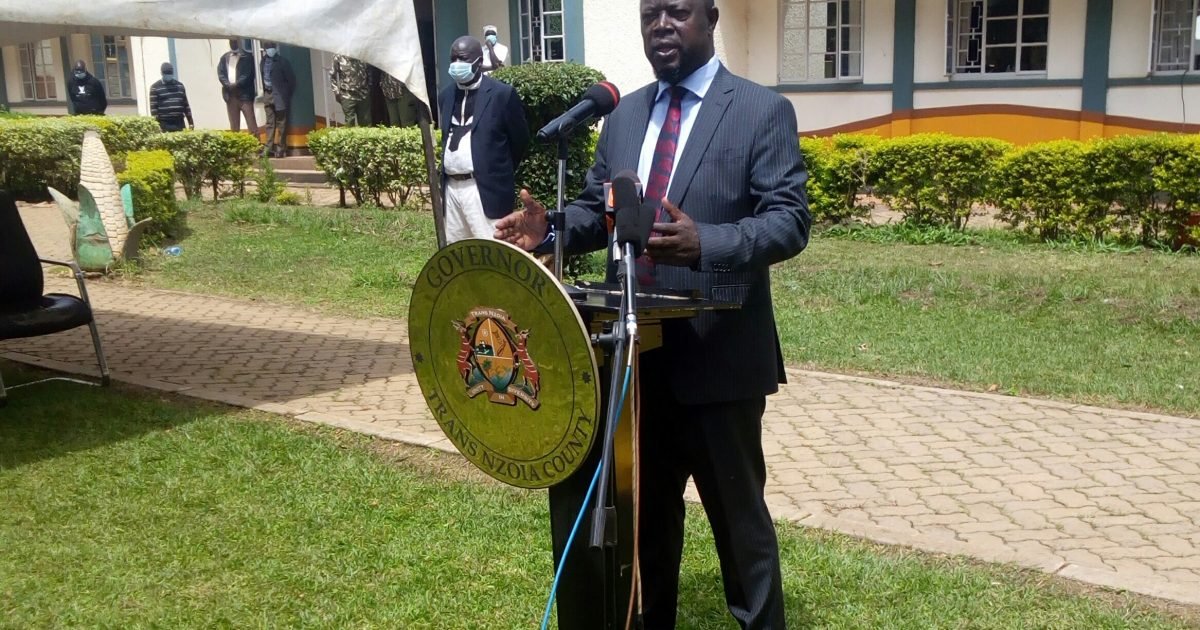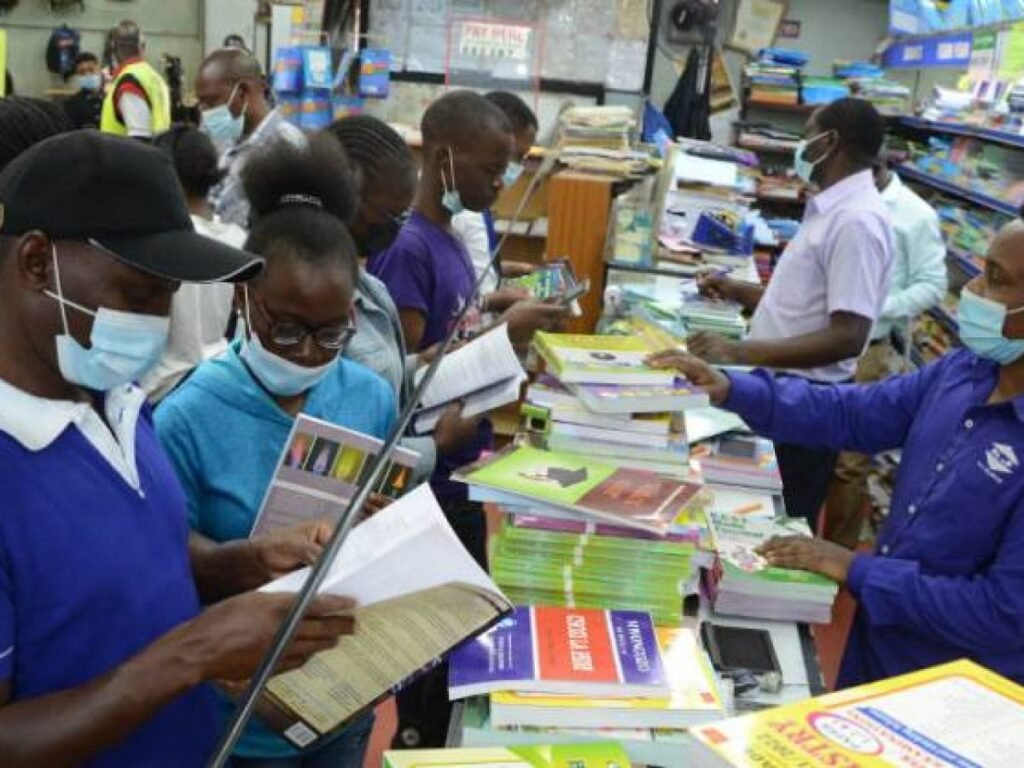General News
Trans Nzoia County Unveils Taskforce To Investigate Land Issues

A taskforce charged with responsibility of assessing and reclaiming all public land in Trans Nzoia County has been put in place.
Governor Mr Patrick Khaemba unveiled the eleven-member task force in brief ceremony at the County headquarters in Kitale town.
“The mandate of this taskforce is to conduct thorough investigations into official land records, reclaim and regularize all parcels of land belonging to the government,” stated Governor Khaemba who was flanked by his Deputy Dr. Stanley Tarus and Trans Nzoia County Commissioner Mr Samson Ojwang.
The governor regretted over what he described as increased land dispute cases involving public land in the county.
According to the county boss, some of the land cases involve prominent personalities and private institutions who are accused of acquiring the same through fraudulent means.
“Quite a big percentage of government land has been lost through fraud, some orchestrated by political influence, with the worst scenario being the Agricultural Development Cooperation (ADC) land,” said Khaemba.
“Hence the team has an uphill assignment with a lot of expectations from both national and county governments and this calls for bravery,” he said and urged county land officers and members of public to accord the taskforce necessary cooperation.
“The county lands department should avail inventories for all public land available to enable the task force duly dispense with its core mandate,” instructed Khaemba.
The governor advised the team to ensure residents are fully involved in the exercise through public participation forums. The group is also expected to verify and authenticate land title deeds belonging to public institutions, including schools, colleges and hospitals.
The eleven members that took oath of office on Friday included Mr Habiud Wasike (Chairperson), Mrs Diana Wabwile (Secretary), Simon Chebii, Kipkorir Lagat, Emmanuel Mutange and Dorothy Nyakuri. Others are Maurice Barasa, Margaret Kogo, Robert Wasike, Zacheus Kitur and Patrick Nyongesa.
The Governor assured the public that all public land that has been grabbed or allocated through fraudulent procedures would be reclaimed.
He called on various county departments to offer maximum cooperation to the members of the task force.
General News
IMF Criticizes Kenya’s Fuel Subsidy Re-Introduction, Warns of Budget Distortion

The International Monetary Fund (IMF) has criticized Kenya for re-implementing the fuel subsidy scheme, expressing concerns that the lack of funds to pay oil marketers could distort the budget.
Despite a previous commitment by President William Ruto in 2022 not to subsidize pump prices, the government reintroduced the subsidy, preventing petrol and diesel prices from reaching higher levels in October 2023.
The IMF argues that the subsidy was applied without available funds, as the Treasury has yet to pay oil marketers at least Ksh9 billion ($55.6 million) accumulated from the previous year. President Ruto’s decision to reinstate subsidies goes against conditions set by the IMF for accessing loans.
Petrol and diesel prices, which were Ksh217.36 ($1.34) and Ksh205.47 ($1.27) respectively in Nairobi in October 2023, remained lower than the potential Ksh220.43 ($1.36) and Ksh217.11 ($1.34) due to the subsidy. However, the IMF disapproves of the decision, emphasizing that the removal of the subsidy was a key condition for a 38-month budget support scheme.
The IMF criticizes the prolonged process of forming a taskforce and delays in implementing decisions regarding fuel pricing.
The removal of the subsidy in May of the previous year led to record-high pump prices, crossing the Ksh200-mark later in the year due to a combination of subsidy removal and a VAT increase to 16 percent.
Kenya’s administration, faced with rising fuel costs, chose to reinstate the subsidy, prompting the IMF to raise alarms over the lack of budgeted funds and potential distortions in the country’s financial plans.
The ongoing disagreement highlights the challenges and consequences associated with balancing domestic economic policies and meeting international financial commitments
General News
Parents in Meru County Turn to Second-Hand Books Amid Economic Hardships

As the back-to-school rush season unfolds in Meru County, a growing number of parents are making a strategic choice to purchase second-hand books for their children.
This decision stems from the challenging economic conditions that have prompted families to seek ways to cut costs.
Among these parents is Ms. Prisca Gakii, who revealed that opting for second-hand books allows her to save money, which can then be allocated towards essential expenses like school fees.
She highlighted a practical advantage for Form-One students, emphasizing that using older books can protect them from potential theft, as new books often become targets for less scrupulous classmates.

Ms. Gakii pointed out a notable price difference, citing an example of a new Oxford dictionary priced at almost Sh1,900, compared to a used one available for Sh1400.
She justified her preference for the older but more affordable option, emphasizing that they contain the same content.
Janet Wamuyu, a second-hand books trader, shed light on the lucrative nature of their business during the opening of the first term, which coincides with the peak season.
As learners transition to new grades or classes, there is a heightened demand for various books, including dictionaries, Kamusi, and Golden Bells.

Wamuyu explained that this period, especially when Form-One students are joining school, facilitates easy acquisition of books for new stock.
The trading process involves exchanging books for the next grade or class at a lower rate, providing an economical alternative for parents instead of purchasing an entirely new set of books.
She further noted that their source of new stock comes from parents whose children have completed their studies and no longer require the books.
Despite the success during the peak season, Wamuyu acknowledged the challenges faced during other times of the year when only a few revision books are in demand, highlighting the cyclical nature of the business in Meru County.











